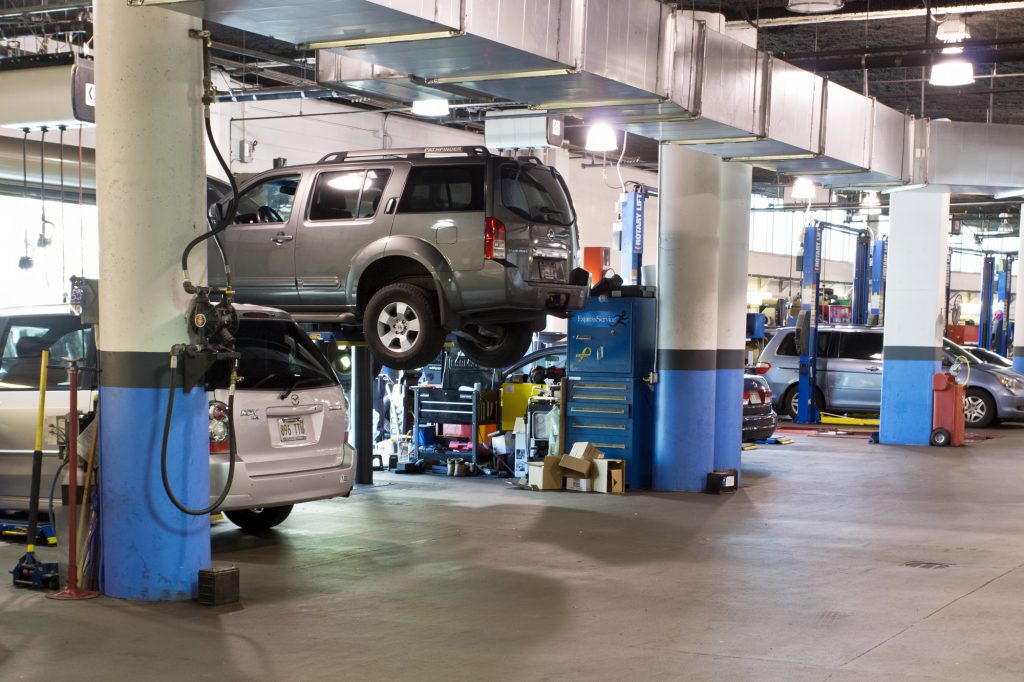
If your shop is scheduling customer appointments by the hour and car counts are getting chaotic with unpredictable swings of busy and slow, you need to organize the business by thinking with scheduling in mind first.
Service advisors should be scheduling customers based on the work needed to be done and technician availability, advised Bryan Stasch, vice president of product and content development at the Automotive Training Institute.
“Focus on how far you should separate your appointments. I am not a believer in [scheduling] every hour,” he said during his presentation Master the Chaos — Art and Science of a Successful Service Advisor.
A good service advisor needs to know the peaks and valleys of the day. They need to know where they can squeeze in a walk-in where they can squeeze in the next call.
“How many of you know which of your days are lighter than the rest? I believe most of you do,” he said at the Midwest Auto Care Alliance’s Vision Hi-Tech Training & Expo in March in Kansas City.
Service advisors should be assigning the right job to the right tech. Stasch encouraged a bin system where the advisor can put a ticket in a tech’s slot and that tech takes care of it. If there’s a pile or it’s a free-for-all, techs will choose the one they want, often an easy one — or worse, think they can take on a challenge and pick a job that they’re not good enough to handle.
“It’s not their job to determine which ones [they take]. That’s your job,” he said.
That way, if a customer calls in wanting their vehicle serviced and the job requires the skills of a certain tech, you can schedule them in when that tech can properly do that job.
This is especially important given the challenges around getting parts on time.
“I’d also even think about looking out a couple of days ahead and what the schedule is. If it’s Thursday, I’m looking at Monday: What might we need? I have this car coming in. We’re going to need to do this. I’m checking the parts manager; I’m also checking with the technician,” Stasch said.
“I’d also even think about looking out a couple of days ahead and what the schedule is. If it’s Thursday, I’m looking at Monday: What might we need?”
If you’re not staying on top of parts, then you can create a bigger problem: Capacity.
“Where do I put all these cars?” becomes a commonly asked question noted Bill Hass, owner of Haas Performance Consulting LLC. You have your “dailies” — the vehicle that comes in and out every day — and then you have others sitting in the lot until the parts come.
“I want to be able to anticipate; expect to know what I’m going to need,” he said.
Know what’s coming from the customer, know what parts are needed and schedule accordingly, Haas recommended.
He gave an example of a customer calling in because of brake noise on their Volkswagen Jetta.
“Do you expect you’re going to put brakes on the car? I do. If you call me up and say I need to bring in my Jetta that every time I press on the brakes, it makes noise. I’m pretty much figuring on selling brakes,” he said. “Why don’t I make sure that everything I might need is available — rotors, pads, calipers, hoses — and have it there so that if I need it, I got it. I’m not finding out that, ‘Oh, well, it’s in a warehouse in Chicago, we’ll have to wait a day to get it from the warehouse.
“Fix that stuff.”
Related Posts
Comments
-
The author has done a great job illustrating age-old problems of forecasting demand and planning for it.
This is a great problem for A.I. Basically, if you can collect hour-by-hour shop underutilization/overutilization, A.I. can provide recommendations for optimum capacity planning.
Today, new technology answer the phone, talk to customers and help service departments elevate customer service by:
– Ensuring 100% of calls are answered and booked – No more long wait times, abandoned calls…
– Ensuring all customer messages are replied to within 1 hour
– Ensuring all service reminders, recalls are sent on time
– Ensuring that your shop is filled to capacity -
I have a real problem with parts suppliers who don’t keep common ordinary items on the shelf but can keep 50000.00 worth of tools or whatever instead. I realize you can’t stock every item for every vehicle, but come on…get the safety related parts in stock. As a shop owner and service writer, I have to guess a week in advance of what a vehicle may or may not require and have to order in these ” maybe we need it” parts because they refuse to keep ordinary parts in stock. They go on usage reports for what they keep in stock. I have told them time after time that I am off to the competition because they have it in stock. Just falls on deaf ears. It costs us in time and fuel to get these parts. Their deafness is wrong on every level, but when you are in the sticks and they are in town they could care less.












Leave a Reply